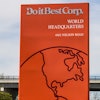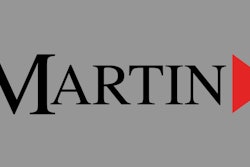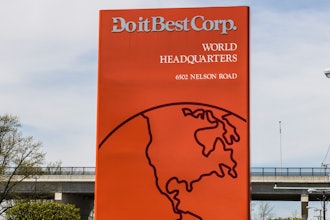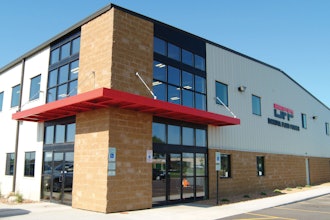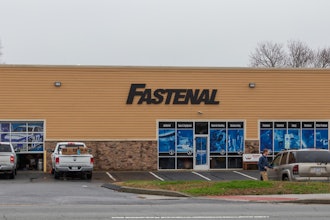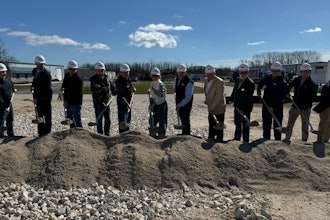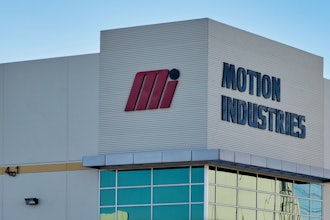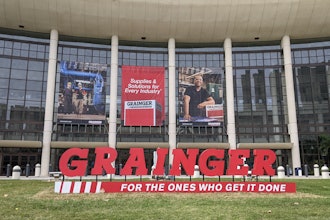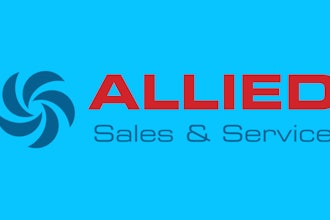Think you're not a direct-to-consumer company? Think again.
E-commerce has fundamentally changed customer expectations. Industrial distributors need to rethink their business-to-business (B2B) label and reach into the direct-to-consumer (DTC) world for insights on evolving customer expectations. As an industrial distributor, you may not be competing directly with Amazon and eBay, but those companies are raising your bar, nonetheless. Your customers increasingly expect:
• “Click of the mouse” comparison of items across suppliers.
• Proactively being informed of order status throughout order processing, shipping, tracking, and returns.
• 24/7/365 customer service (including technical expertise).
• Personalized, value-added services.
• Overnight or same-day delivery.
• Green packaging/waste reduction.
• 100 percent accuracy and quality of orders.
• For you to be easy to work with (hassle free, ease of returns).
How does today’s industrial distributor meet these increasing customer expectations while balancing other demands including how best to drive profitability and improve cash flow, enable business growth, and build sustainable competitive advantages in the marketplace?
These business expectations and requirements are, in fact, interrelated and impact one another greatly. By building a key competitive advantage through improved capabilities, distributors can enable and drive profitable business growth and improve cash flow. As such, the focus of this article is to provide insights into why B2B companies may want to consider acting and thinking like DTC distributors to better meet the evolving needs of customers’ changing behaviors. This thinking goes hand in hand with the ability to provide a local feel yet have global capabilities – a key tenet to most industrial distributors.
In the Customers’ Shoes
Jeff Bezos, founder of Amazon, had a great visionary quote in 1998, stating: “Commerce is simple – you find it, buy it, and ship it. E-commerce, however, is much more about customer behavior evolving.” He was right. Our clients (across multiple industries including multi-channel apparel/footwear, specialty retail, electronics, and industrial distribution) have realized that e-commerce has fundamentally changed customers’ behaviors and expectations, and created new demands that must be met to delight (i.e., win and keep) your customers.
So, as a quick exercise, let’s place ourselves in our customer’s shoes:
So, how will this trend impact your business long-term? Are you promising and delivering enough to gain a competitive advantage? Is your business completely aligned and integrated to deliver on your customer note?
Assessing Capabilities in Relationship to Evolving Customer Needs
The focus of the following information is to provide an understanding of the ever-growing and evolving expectations of your customers. This evolution is due to continued exposure to leading edge e-commerce capabilities. Although being a B2B business, the ability to develop capabilities to support customer’s evolving needs remain critical to long-term success (and survivability).
TREND: 100% SKU availability and ease of doing business
Your Customers’ Expectations:
• Customers have come to expect an online presence where they can make informed buying decisions.
• Customers have come to expect that with the ‘click of a mouse’, they can also compare the same SKU across multiple companies.
• Customers minimally expect to be able to compare key features including price, SKU availability, speed of delivery, shipping costs, return policies, and more.
• The importance of convenience and ease of doing business are critically important to customers.
• Customers expect uniformity across all channels (i.e., retail/branch, direct, wholesale).
Business Questions:
• Is your business capable of providing the required information to your customer base while still differentiating the value of buying from you vs. your competition?
• Are your sales/returns policies and supply chain aligned with being easy to do business with?
• Do you make your customers’ lives convenient and hassle free?
• Are you easily accessible for person-to-person communication when necessary?
TREND: Order visibility, proactive communication, and speed of business
Your Customers’ Expectations:• Customers expect transparency and visibility throughout the order/delivery process.
• Customers expect to receive timely information relative to order processing, shipping and tracking, and delivery.
• Customers expect exceptions to be remedied quickly (i.e., back orders delivered, communication throughout, suggestions for alternate SKUs, etc.).
• Customers expect proactive communication.
• Customers have come to expect all businesses operate at a different speed (i.e., much faster) than traditional “brick and mortar” branches/stores of the past.
Business Questions:
• Are the right CRM, order management, and communication systems and/or processes in place to provide proactive feedback and visibility throughout the order cycle (i.e., order placement to delivery to returns management)?
• Is your supply chain capable of providing the requisite information in a timely manner? For instance, if a SKU is out of stock in DC #7, can you quickly update your customer with that information, as well as provide when the proposed resolution will be executed (or easily ship from a different DC)?
• Can you operate at the speed of DTC companies?



